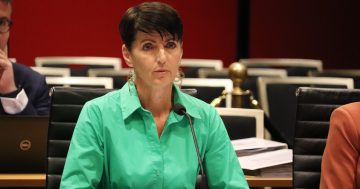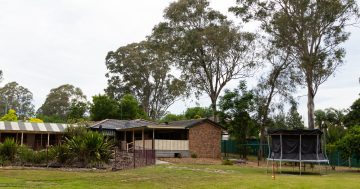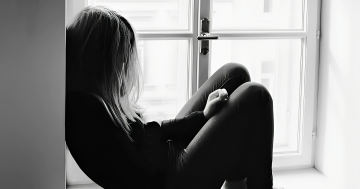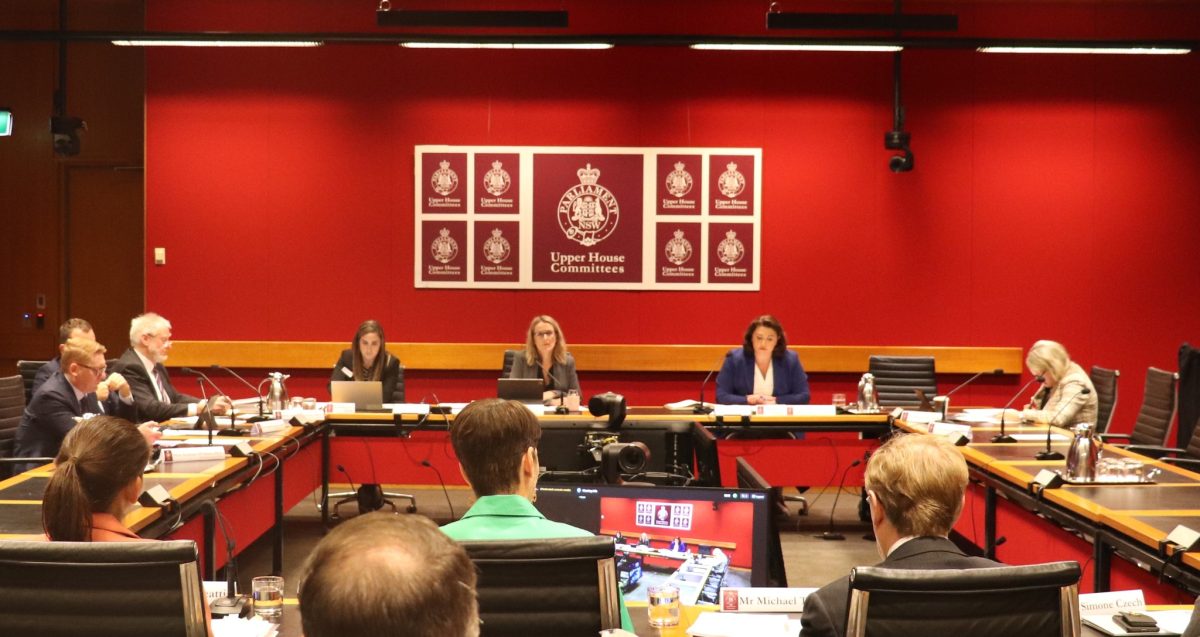
Former minister Natasha Maclaren-Jones (blue jacket) questions current Minister Kate Washington (in green, back to camera) in Budget Estimates on foster care kids living in hotels. Photo: NSW Legislative Assembly.
The NSW Government child protection department kept a two-year-old foster care baby and their four-year-old sibling in hotel-style accommodation for 163 days, a parliamentary hearing has been told.
A Department of Communities and Justice official said “a lack of available foster carers”, was the reason for placing the toddlers in what she called an “alternative care arrangement (ACA)”.
ACA is generally a hotel, motel, caravan park or serviced apartment.
The department refused to answer, “for privacy reasons”, questions from Region on what specific type of accommodation the children were in, what support and supervision they were receiving, and how much this arrangement cost.
The average cost to taxpayers of keeping a child in hotel-style accommodation for a year is $829,000, according to figures published in September 2023.
There were 90 children living in hotel-style facilities in the past financial year, the department states.
The longest a child has been in such accommodation is just under two years.
The revelation about the two-year-old was made in a Budget Estimates parliamentary hearing on Monday, 4 March, after sustained questioning from former Families minister Natasha Maclaren-Jones to current Families Minister Kate Washington and her bureaucrats.
“One hundred and sixty-three days is a long time for two siblings to be there … if the [accommodation facilities] have staff who are not qualified or approved to look after children, that is a huge issue,” Ms Maclaren-Jones told Region.
Just under 15,000 children are living in what’s called out-of-home care (OOHC) in the state. Most of these kids were removed from their birth parents by the government due to abuse or neglect, and placed with foster carers.
However, a chronic shortage of carers means the department sometimes houses children in hotels and motels. While staff in these facilities are required to have Working with Children checks, they do not necessarily have qualifications to look after children.
“Under the former government, the use of hotels and motels for vulnerable children skyrocketed, and the child protection system was left to spiral out of control,” Minister Washington said.
“I’ve made it very clear to the department and to the sector – these arrangements are not appropriate, and the NSW Government will be doing everything it can to find stable, loving homes for these children.
“A 42 per cent reduction in alternative care arrangements in just four months demonstrates how seriously the government is taking this issue.”
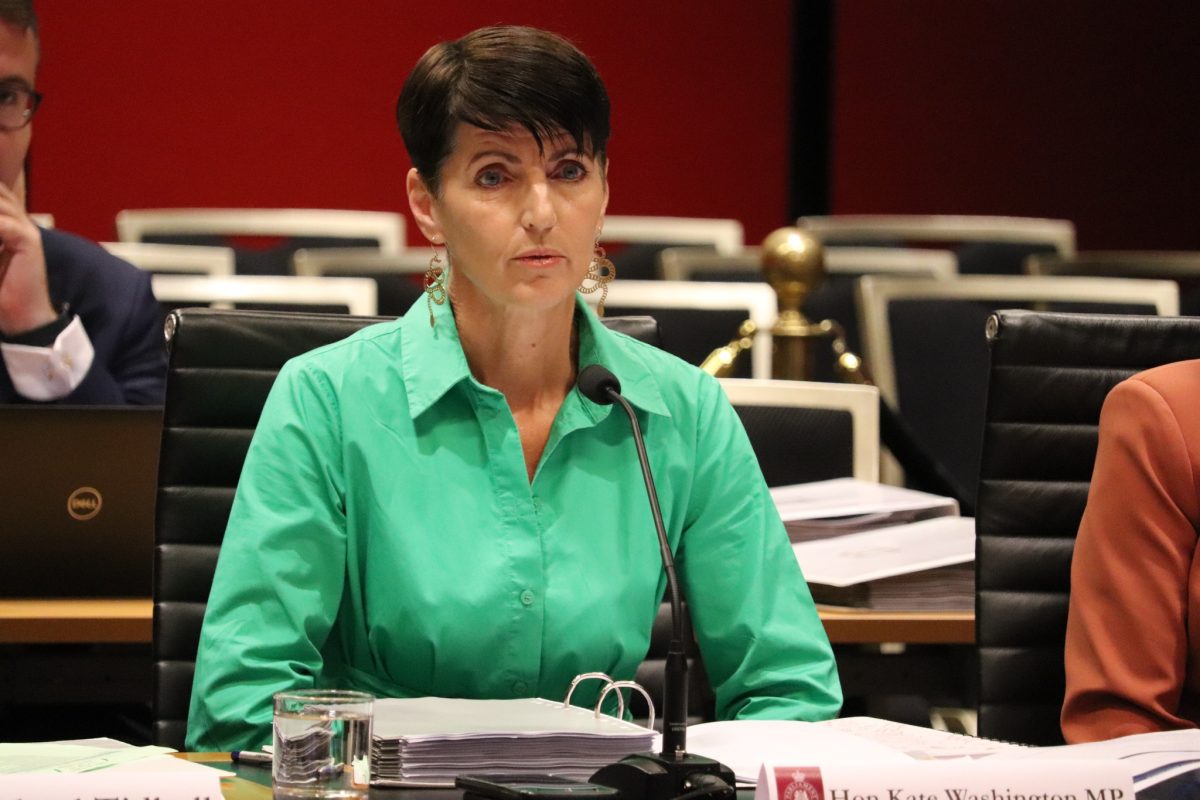
Minister Kate Washington said she was trying to fix the previous government’s mistakes. Photo: NSW Legislative Assembly.
The NSW Advocate for Children and Young People, Zoe Robinson, is conducting an inquiry into foster children being placed in hotel-style accommodation.
Region asked her office whether Ms Robinson was concerned about a two-year-old being kept in such facilities, whether she’d take it up with the department and whether it highlighted systemic problems. She did not answer these questions, instead providing a generic statement, saying she was focused on the safety of children and that her inquiry would provide recommendations mid-year.
The Advocate is a special role created by the NSW Government to “promote the wellbeing of children and young people”.
Ms Maclaren-Jones said Minister Washington couldn’t blame the previous government for all the problems with the system, telling the parliamentary hearing that 400 foster carers had left the department in the 12 months since Labor came to power.
“The government has not explained why so many foster carers have left the system and what they’re doing to address it,” she said.
The former minister also said there was not enough focus on providing permanency and stability for children and that more kids being adopted would ease pressure on the overburdened foster care system.
She told the hearing that families who were trying to adopt children from OOHC were coming to her because they were becoming frustrated with a process that took several years to finalise.
“This government has an anti-adoption approach, it’s certainly not getting the attention it deserves. The focus is on restoration [to birth families], not adoption, but I think you can do both,” Ms Maclaren-Jones said.
The NSW Labor Government rejects this, saying it has not made any changes to adoption policy since forming government last year.
In 2022-23, just 60 children were adopted from foster care, the lowest number in seven years and less than 1 per cent of the total OOHC population. More recent figures on adoptions under the current government have not yet been publicly released.
Note: The author of this article worked on adoption policy for the NSW government between 2012 and 2014 and wrote articles on the need for adoption reform for The Guardian, Herald Sun and Adopt Change in 2016.







